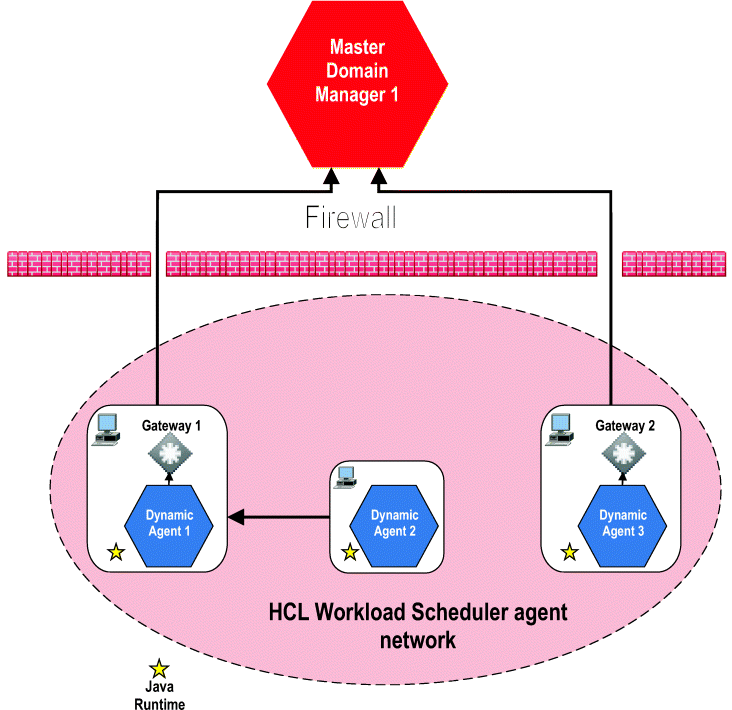Configuring dynamic agent communications through a gateway
In some complex network topologies, the master domain manager or the dynamic domain manager are prevented from directly communicating with the dynamic agent.
Before you begin
About this task
For information about the gateway parameters available with the installation of a dynamic agent, see Agent installation parameters - twsinst script.
To configure an existing HCL Workload Automation version 9.2 or later dynamic agent to communicate to its master domain manager or dynamic domain manager through a local gateway, perform the following configuration steps:
Procedure
- Edit the JobManager.ini file on the dynamic agent workstation
that you want to configure to communicate through a gateway. Edit
the [ResourceAdvisorAgent] section so that the value of the ResourceAdvisorURL parameter
is
https://$(tdwb_server):$(tdwb_port)/ita/JobManagerGW/JobManagerRESTWeb/JobScheduler/resource, where, $(tdwb_server) and $(tdwb_port) correspond to the host name and port of the gateway that you want to use for communication with the master domain manager or the dynamic domain manager. - Stop and start the dynamic agent to implement the changes.
Results
ActionPollers parameter as described in Configuring general properties [ITA].Example

| Dynamic Agent | Configuration File | Parameter | Value |
|---|---|---|---|
| Dynamic Agent 1 - Local gateway | JobManager.ini | Section |
|
| Dynamic Agent 2 - Remote gateway | JobManager.ini | Section |
|
| Dynamic Agent 3 - Local gateway | JobManager.ini | Section |
|
What to do next
To see an example of the installation parameters that must be specified to configure a gateway when installing a dynamic agent, see Example installation commands and Dynamic agent gateway installation examples.